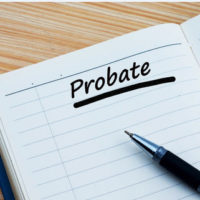Florida Probate Issues And The Homestead

It is not uncommon in this day and age that older people, especially those with significant assets, might divide their time between multiple homes instead of having one main domicile. If this happens in your family, however, it has a good chance at severely complicating the probate proceedings that any estate will have to go through. Florida allows the designation of a “homestead” property, which is exempt from creditors, but the property has to meet specific requirements before it can qualify. You need to ensure you are conversant with the homestead regulations before you try to claim your house as one, because not every home will fit the bill.
What Is A Homestead?
Under Florida law, a house or other domicile (an apartment or condominium, for example) where a family resides can be carved out of an estate and given a special ‘homestead’ exemption. This is, in many ways, an artificial distinction, but it is an important one, and it is held by the homeowner during their lifetime, to be handed down with the homestead itself. A homestead is essentially exempted from creditors or taxation. If a person passes away without a surviving spouse or lineal descendants, however, the homestead will pass down the line of inheritance like every other asset.
It is important to understand that defining what a homestead is can sometimes be difficult, especially if a person had multiple homes in the state. It is also worth underscoring the fact that while a homestead is exempt from creditors and taxation if willed to a surviving spouse or lineal descendants, it is not exempt if willed to someone who is not a blood relative. The homestead may be willed to anyone the owner chooses, but the exemption must pass down the family line. Many are unaware of this, however, and it can cause problems after the homeowner has passed away.
The Spouse’s Choice
The major directive that anyone dealing with Florida probate should be aware of is that details and specifics of bequests are crucial – without a clearly delineated bequest, the probate court may not rule in that person’s favor, despite allegations or promises. Nowhere is this more clear than in the state’s homestead laws. If the house is not specifically deeded to the surviving spouse, in theory it passes to the decedent’s children, but there is a choice for the surviving spouse to make.
Before 2010, the surviving spouse would be entitled to a life estate – an interest in property that is limited to one person’s life span, usually the holder’s – which allowed the spouse to live on the property, but also required them to pay the taxes and maintain the property, which can be an undue burden on a single elderly person in particular. Late in 2010, however, the statute was updated to offer the choice of a one-half interest in the property if elected by the surviving spouse, which effectively splits the property, but allows more autonomy for all parties.
Seek Experienced Legal Help
Probating an estate is a complex process at the best of times, and having a knowledgeable attorney on your side can help smooth out the process. The dedicated Hollywood probate lawyers at the firm of Steven A. Mason, P.A. have years of experience in this field of law, and are happy to sit down and share some of it with you. Contact the Fort Lauderdale and Hollywood Law Offices of Steven A. Mason, P.A. for legal advice at 954-963-5900 or leave a message online.
Resources:
leg.state.fl.us/Statutes/index.cfm?App_mode=Display_Statute&Search_String=&URL=0700-0799/0732/Sections/0732.401.html
leg.state.fl.us/Statutes/index.cfm?App_mode=Display_Statute&Search_String=&URL=0100-0199/0196/Sections/0196.031.html
